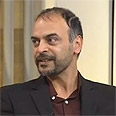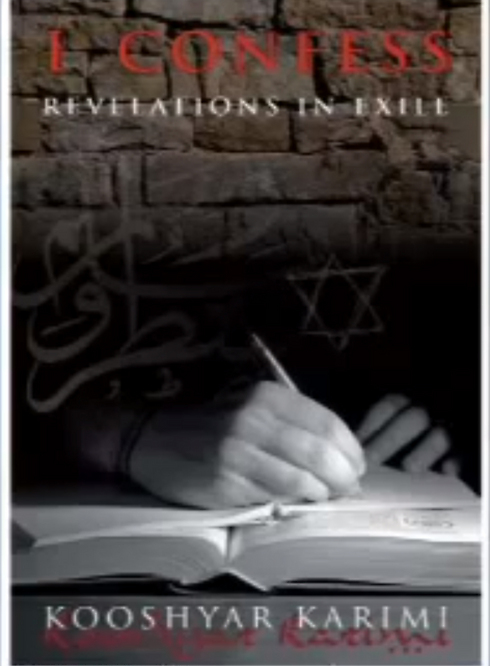
Confessions of a Jewish-Iranian spy
Now residing in Australia, Kooshyar Karimi, 44-year-old Jewish Iranian who suffered persecution at hands of Iranian regime, forced to spy on other Jews, discusses hardship in Islamic Republic
One of those viewing the developments with satisfaction is Kooshyar Karimi, a 44-year-old Jewish Iranian who suffered from persecution at the hands of the Iranian regime before receiving asylum in Australia. In his new book called "I Confess," Karimi described the life of a Jew in Iran.
Related stories:
- Iran's Jews: Tolerance or veiled persecution?
- Jewish leader: Ahmadinejad views 'smug'
- Iranian director banned after Israel visit
"Like a bird in the cat's room" Karimi described his life as Jew, growing up in a a poor Teheran neighborhood.
'My faith sustained me'
Nowadays, Karimi lives in Sydney, Australia. In his book he recalls learning about his Jewish identity at the age of 5 from his mother, after the familiy's religious identity had been kept secret from him. It
Karimi described the hardships of growing up Jewish in Iran, living in constant fear, trying to run a double life aimed at concealing his religious affiliation. It's "like walking a minefield," he recalls.
He credits his faith as enabling him to survive. In his book he ascribes his survival to his "great faith" in God. He also recalls hearing about Israel and that each person has a destiny, it was then he decided to be a doctor.
Karimi's mother married a Muslim man who was already married to two other women. When she was pregnant, he moved her into a cellar where she effectively raised her children on her own. In wake of the family's poor economic condition, Karimi found his first job at the age of five, working in all manner of odd jobs – from selling watermelons to fixing bicycles. In the meantime, his mother maintained an affair with another man who financially assisted the family.
His mother's secret affair put Karimi's life in direct danger, because adultery is illegal in Iran. According to him, despite all his mother's shortcomings, she symbolized the perseverance of Iranian Jews. She was the perfect combination of determination and resourcefulness, he noted, claiming his mother taught him to see beauty and love in everything. It was these, he asserted, that helped him survive Teheran's dark alleys.

Karimi's book
Karimi studied medicine and specialized in emergency care. His studies put him in contact with a group of desolate women, the majority of whom were pregnant as a result of rape. In his book he reveals one of his best kept secrets – as a doctor he performed more than 200 abortions, and in some cases even performed hymen reconstruction surgery for young rape victims.
"Rape is a very common thing in the Middle East, especially in Iran," he said, explaining that rape victims are usually shamed and as a result large percentages of them commit suicide."
Abortions are considered un-Islamic by Iranian law, and Karimi was putting his life at risk when choosing a writer's career, which made it harder to escape public scrutiny.
In 1998, he was arrested and severly totured for a period of two months. He eventually cracked and agreed to spy for the authorities in reporting about Jews around him, including his family. He then decided to flee to Turkey.
Karimi wasn't the only one. In an interview with Australian TV last year he said that many Iranians are forced to lead a double life, as many things are forbidden. Prohibitions notwithstanding, people drink alcohol and have sex, Karimi noted, adding that when everything is forbidden, people rebel purposefully.
His book, "I Confess," was dedicated to Habib Elghanian, the first Jew who was executed in Iran after the 1979 Islamic revolution.Karimi said his mother was arrested after the book was published and was released 28 days later due to health problems. He noted that despite the arrest, she informed him she was doing well and that she was in full support of him. He said he intended to write another book, which will focus on rape victims in Iran.
In 2000, following 13 months in Turkey, Karimi was granted refugee status by the UN. He was then granted an Australian visa, and moved to Sydney, where he practices medicine.
- Receive Ynetnews updates directly to your desktop










